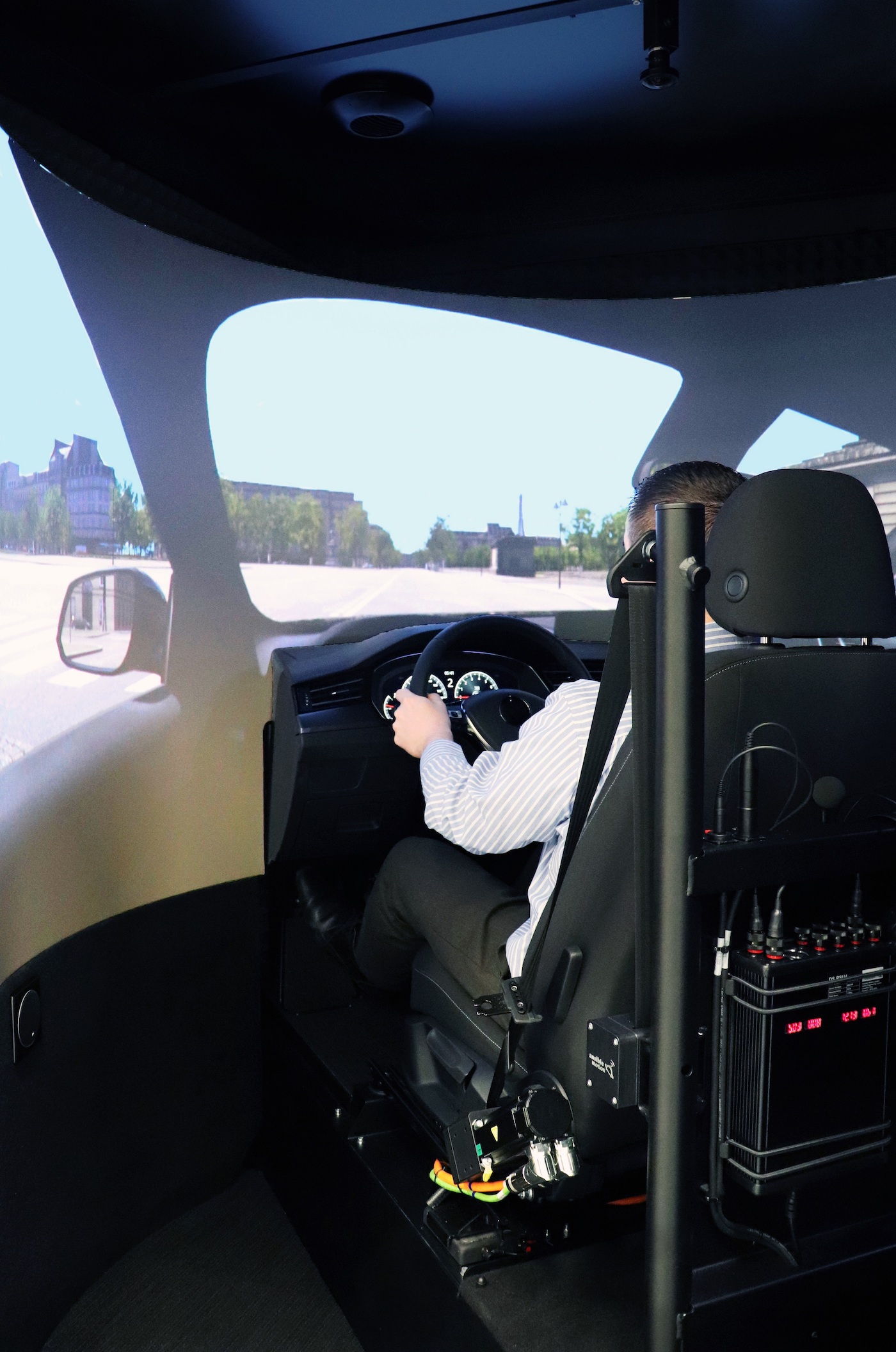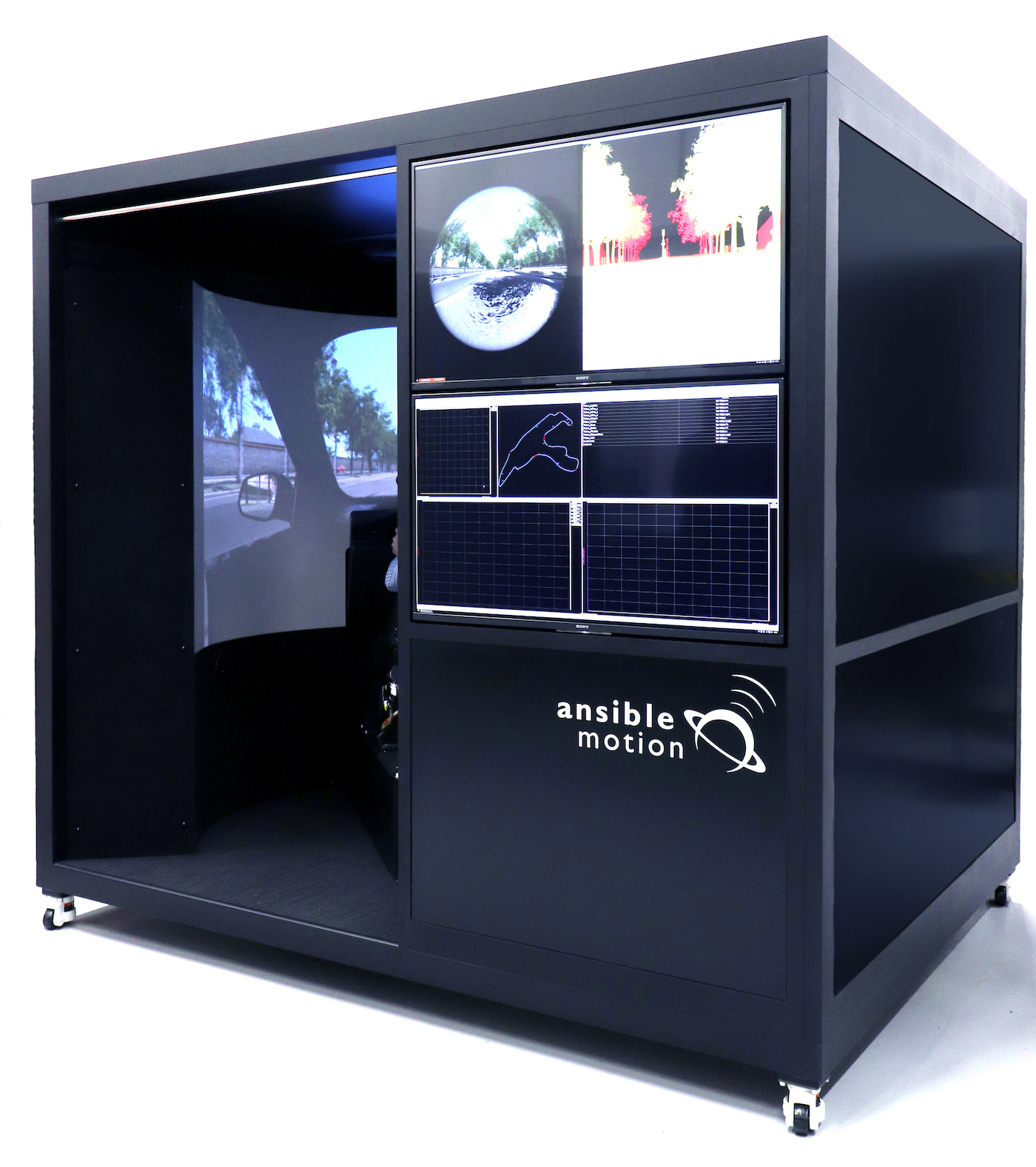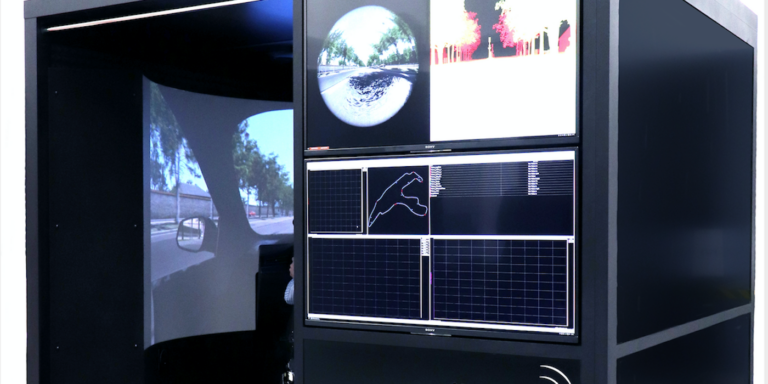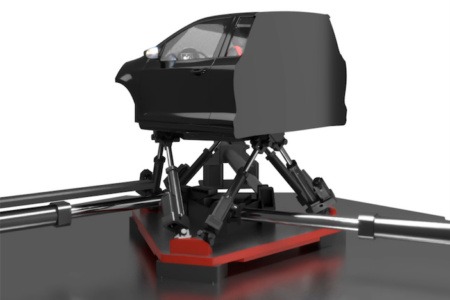A compact and self-contained cube simulator has been unveiled that is claimed to be powerful enough to validate driver assistance and autonomous technologies. Developed by Ansible Motion, the Theta C simulator has a compact footprint (2m x 2m x 2m) and sophisticated computational architecture that the company says will offer OEMs, Tier 1s, research institutes and industry bodies a more immersive and car-like environment than is currently available from other compact simulators – as well as a smaller and potentially less expensive alternative.
Ansible Motion says the technology represents the” most immersive environment ever” for a compact Driver-in-the-Loop (DIL) simulator, whilst making its practical operation much easier. The Theta C incorporates a panoramic projection system, detailed vehicle interior, immersion technologies for driver touch points, active steering torque and seat loading systems, foot pedal and gear select emulation, along with a surround sound audio system. Its integrated form and internal sound isolation mean it can be used in standard office spaces.
“Vehicle complexity continues to increase, putting pressure on development timescales and resources. More companies and departments now need access to human-in-the-loop simulation technologies to validate hardware and software solutions,” stated Kia Cammaerts, founder of Ansible Motion.

“We identified that some current DIL simulators offer the required fidelity but also require permanent installations. This means a high capital expenditure to cover the simulator itself, as well as the facility. Theta C is different. The cube analogy is apt as Theta C is a fundamental building block for connecting real people with automotive simulations, anywhere in the world. We have optimised complexity, quality and time-to-deploy,” added Cammaerts. “You can wheel it in, plug in and start work. It can be operated stand-alone, or it can connect with external Software-in-the-Loop (SIL) and Hardware-in-the-Loop (HIL) systems.”
Theta C is compatible with all leading vehicle modelling and scenario tools, including those from Dassault, MSC, AVL and Mechanical Simulation. Complex traffic and actor scripting, together with sensor integration, make Theta C suitable for validating scenarios for advanced driver assistance systems (ADAS), active safety and autonomy.
“The Theta C simulator is a direct response to our interactions with OEMs and Tier 1s, who are seeking dependable, rapid, and powerful validation tools. There is an unprecedented demand being driven by megatrends in autonomy, electrification, connectivity, and driver assistance,” adds Cammaerts.
Ansible Motion began production of the Theta C driving simulator after favourable responses were received from its initial exhibit at the JSAE 2019 Congress in Yokohama, Japan in May 2019. The first production units will be delivered to customers in Q4 2019.






